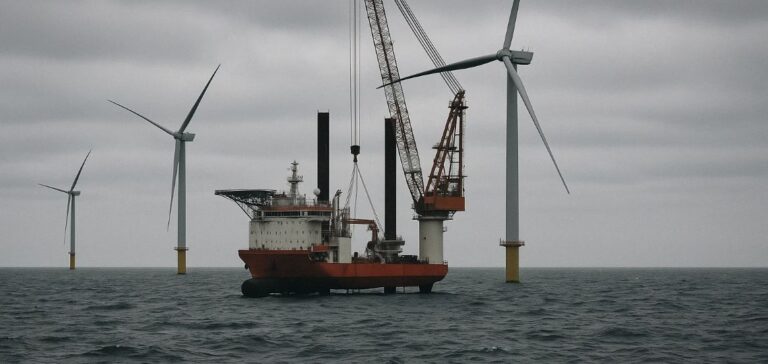Norwegian energy giant Equinor announced on April 16 that the US administration had suspended the construction of its Empire Wind 1 offshore wind project, located approximately 24 to 48 kilometers southeast of Long Island, New York. The 810 MW project, designed to provide electricity to around 500,000 New York households, was halted due to concerns over the lack of a complete environmental analysis, the company said in a statement sent to AFP. The Bureau of Ocean Energy Management (BOEM) issued a notification requesting the immediate cessation of work.
Equinor clarified that it would continue discussions with the BOEM and the U.S. Department of the Interior to clarify the issues raised in the notification, although no further details regarding potential consequences were provided. The Empire Wind 1 project had begun its construction phase in 2024, with the first phase scheduled to be completed by 2027.
U.S. Secretary of the Interior, Doug Burgum, expressed concerns on April 15, highlighting that the Biden administration may have approved the project too hastily without conducting an adequate review of its environmental impacts. This suspension follows a series of decrees signed by former President Donald Trump at the beginning of his second term, imposing a freeze on permits and federal funding for offshore wind projects. Trump had repeatedly voiced his opposition to wind turbines, calling the installations visual nuisances and a threat to marine life, particularly whales.
This project, intended to be the first to provide electricity directly to New York City, aimed to bolster New York State’s renewable energy strategy to meet growing energy demand while reducing the use of fossil fuels.
Impact of the Project on the Energy Transition
Empire Wind 1, with a capacity of 810 MW, represents a significant part of New York’s renewable energy ambitions. The project would have marked a significant step towards the state’s energy diversification, with major implications for electricity supply and climate goals. The impact of this suspension could affect not only the electricity production timeline but also the relationships with other energy sector players in the region.
The Political and Administrative Context of the Suspension
The freeze on offshore wind projects is a measure taken under the Trump administration, which expressed concerns about the environmental and visual impact of wind farms. The Biden administration, although supportive of renewable energy development, appears to be facing challenges in balancing economic development with rigorous environmental analysis. The Empire Wind 1 project thus becomes a focal point in the debate over the extent of environmental controls necessary for such initiatives.






















